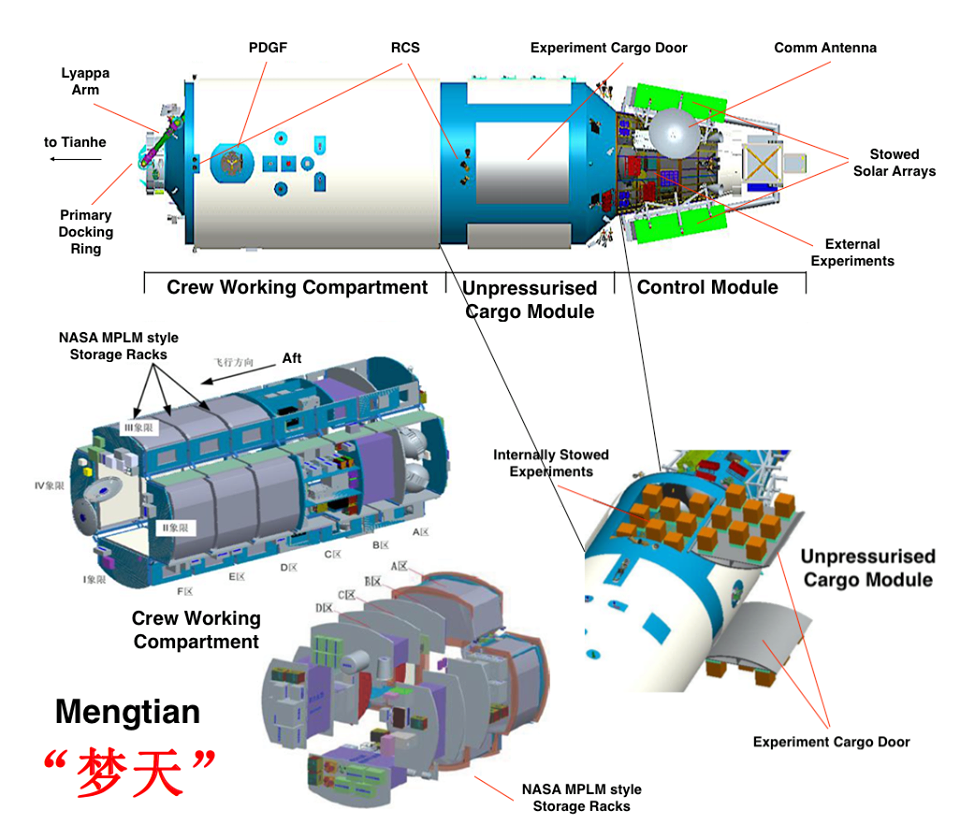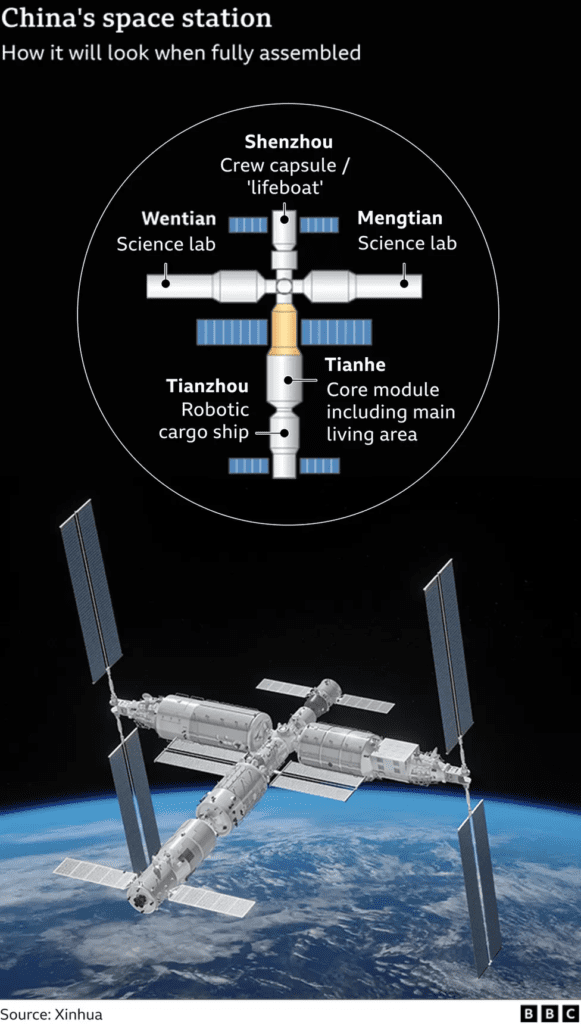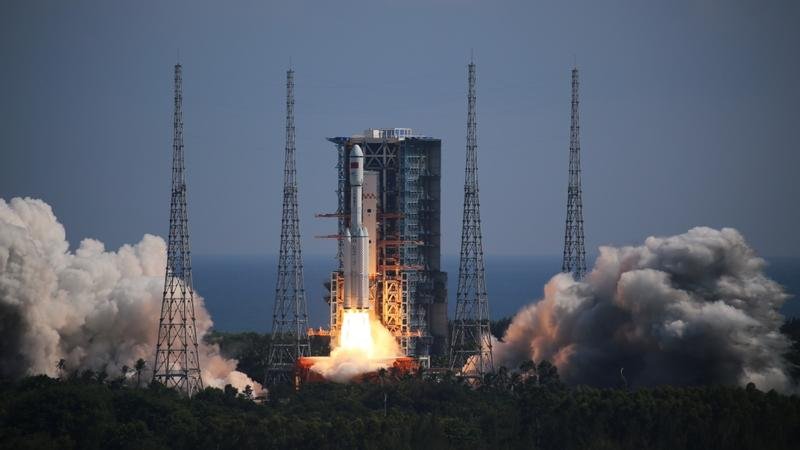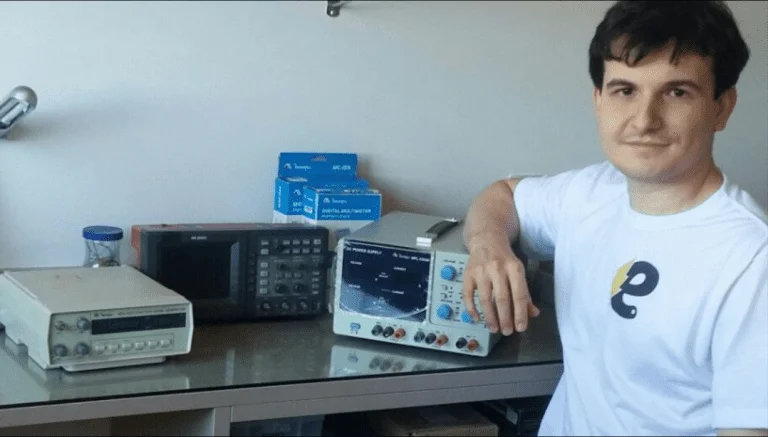Was launched on this Monday, the last main module of the Chinese space station Tiangong, the space lab Mengtian.
The following links access posts about other modules.
Source: China Daily
The lab module’s carrier — a Long March 5B heavy-lift rocket — blasted off at 3:37 pm at the Wenchang Space Launch Center in the southernmost island province of Hainan.
After flying more than eight minutes, the rocket placed the spacecraft into a low-Earth orbit nearly 400 kilometers above the ground in which Tiangong is traveling.
In the next couple of hours, the Mengtian is scheduled to rendezvous and then dock with the Tiangong station’s Tianhe core module, according to the China Manned Space Agency.
Mengtian was transported to Wenchang by ship in early August. It underwent function and prelaunch checks over the past three months at the launch center. The craft received fuel earlier this month at the launch center.
About Mengtian
The lab module is about 17.9 meters long, has a diameter of 4.2 meters and weighs more than 23 metric tons, according to its designers at the Shanghai Academy of Spaceflight Technology.
“There are 13 scientific cabinets inside the craft to hold scientific equipment. It also carries 37 extravehicular payload adapters capable of carrying scientific experiments needed to be exposed to the space environment, cosmic rays, vacuum, and solar winds”, according to Gan Keli, Mengtian’s project manager at the Shanghai academy.
Gan noted that scientific equipment onboard will be used for microgravity studies and to carry out experiments in fluid physics, materials science, combustion science and fundamental physics.

Liu Guoning, deputy chief designer of the scientific cabinet system at the Chinese Academy of Sciences’ Technology and Engineering Center for Space Utilization, said the scientific experiments to be carried out inside the Mengtian are expected to enable scientists to conduct cutting-edge studies and get world-class findings.
The results of the experiments can also boost the applications and transfer of advanced space science and technology to other research fields, he said.
“By now, we have arranged about 40 experiments on those eight cabinets and will gradually carry out them in accordance with overall plan,” the scientist said.
Liu said three experiments that will take place inside the Mengtian will involve cooperation with researchers from the European Space Agency and they will help to increase the status of the Tiangong station in the international science community.



